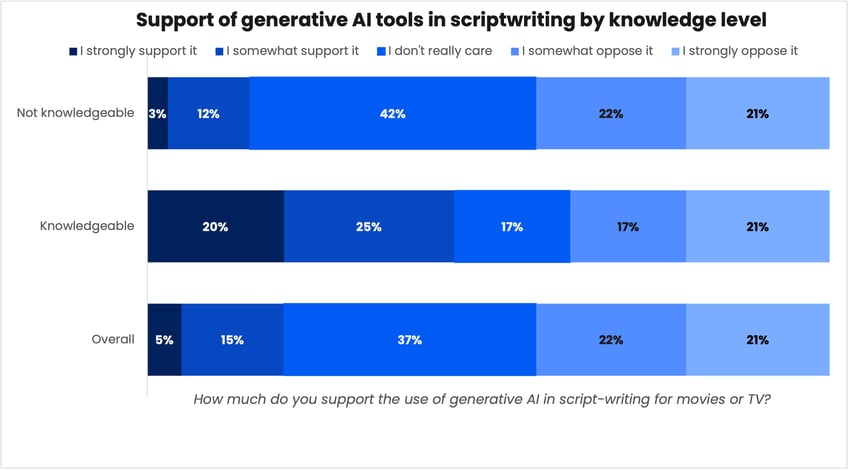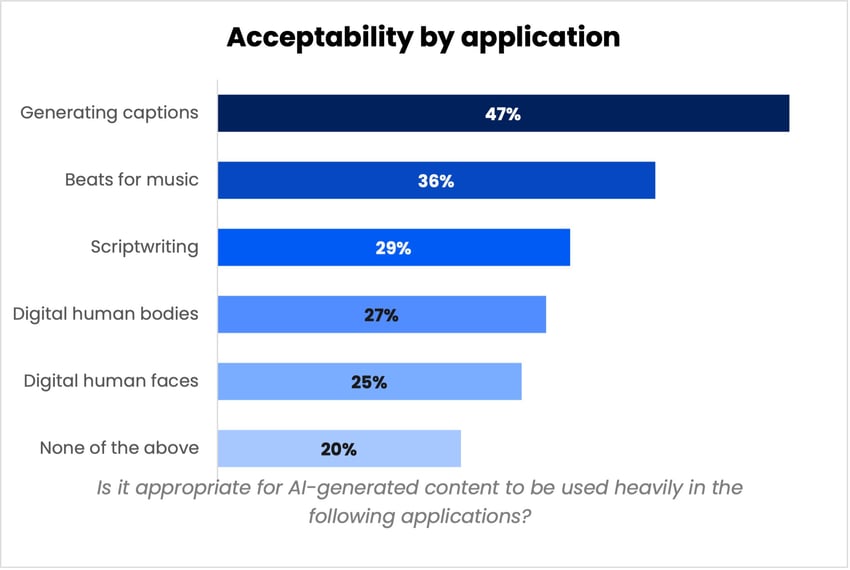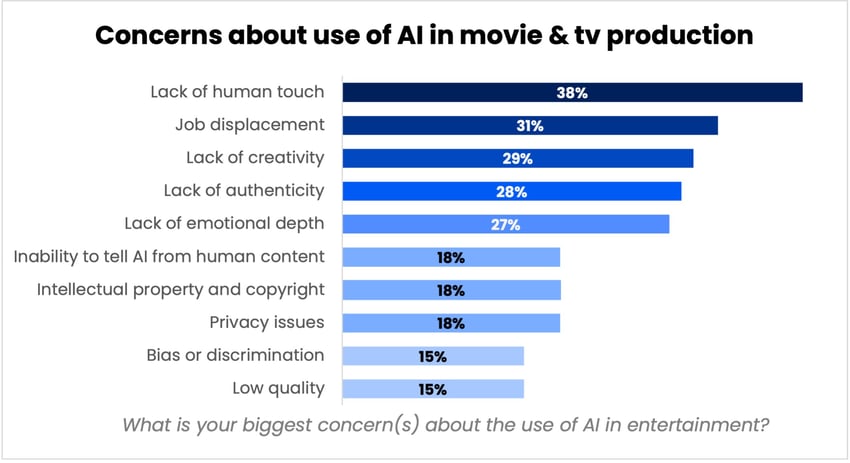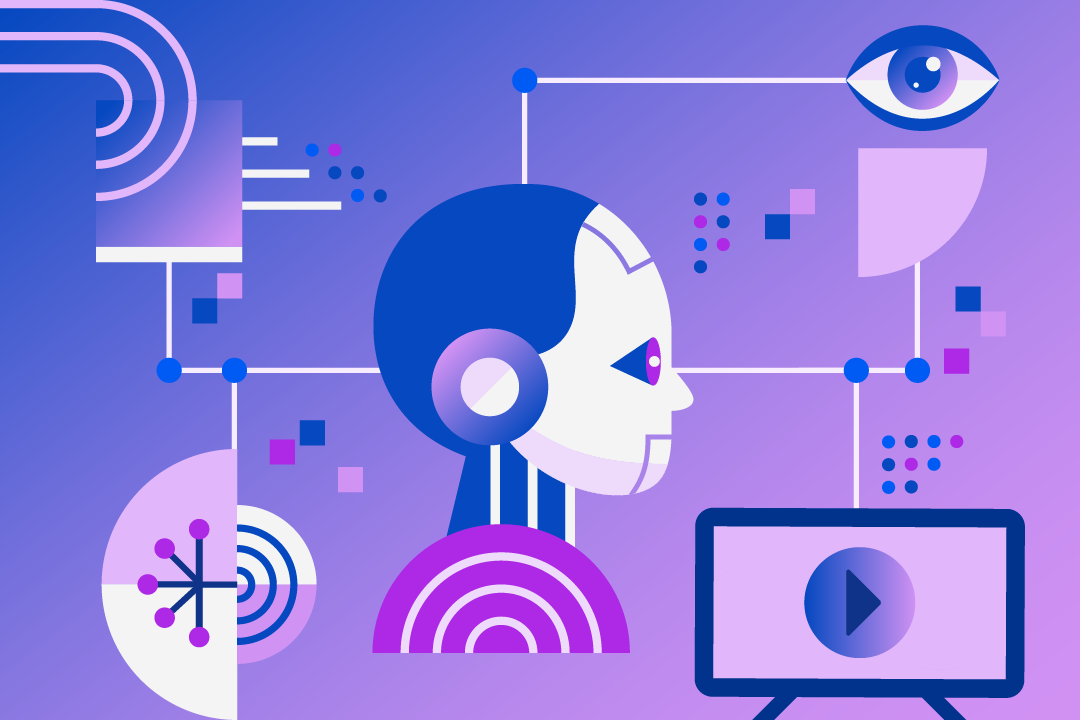New insights shed light on consumer attitudes in writer’s strike climate
#GenerativeAI has been in the news as the Writer’s Guild of America strike takes center stage in Hollywood, with calls for greater AI regulation in entertainment. It’s one of the first large-scale labor strikes demanding limitations and bans on AI - but it likely won’t be the last. With media headlines like Will a Chatbot Write the Next Succession?, it’s no surprise that job displacement fears and intellectual property concerns in entertainment are widespread.
While it’s clear where writers stand on the topic, consumer attitudes will play a significant role in determining whether AI-generated content is embraced in entertainment or instead seen as an infringement on creativity. Through a survey of 30,000+ consumers, DISQO dove into consumer perspectives about AI-generated movies and tv shows to better understand how receptive they are to this content hitting the screen. These insights should be read in the context of our larger report examining overall consumer perceptions of generative AI; it offers important benchmarks for any given industry delving into generative AI.
Support is heavily influenced by AI knowledge levels
Since the use of AI in scriptwriting is a hot topic right now with the WGA strike, we examined overall receptivity to generative AI in this context. About 45% of consumers oppose the use of generative AI tools in scriptwriting, while less than half of that (20%) support it. It’s noteworthy that strong opposition is 4x higher than strong support. Gen Z and Millennials make up the majority of those that do support AI in scriptwriting, a testament to their familiarity and comfort with digital platforms.

It’s important to understand how these attitudes shift by knowledge level about AI to gauge where consumers may lean as their knowledge grows. The above chart shows that knowledge has a significant impact on support. Those with self-reported knowledge are +25 points more supportive, while those reporting less knowledge are -5 points below the average consumer.
Those reporting “very high” knowledge are at least +30 points more likely to support the use of generative AI in scriptwriting. However, this group is only ~2% of the general population, meaning most consumers are unsupportive. We also see more neutrality among the general consumer and those less knowledgeable; those with higher knowledge have a clearly more favorable opinion, indicating that, as more people learn about AI, receptivity will grow.
Context matters
So, knowledge has a significant impact on support. But what about specific applications? Are there areas of tv or movie production where AI may be applied that resonate more with consumers? To dig into this, we examined receptivity to discrete applications of generative AI that require varying degrees of human input.

The chart above indicates that consumers do assess acceptability differently based on specific applications. AI use is deemed more appropriate in generating captions and synthetic beats for tv shows and movies, but less so in scriptwriting and visual production, where acceptability drops 15-20 points. People are open to AI applications in some contexts, but they’re far less willing to embrace them in other contexts where human input is required.
Low support for AI-generated writing is consistent across contexts. From books to podcasts, to tv shows and movies, there’s very little difference (1-4 points) in acceptability. While AI continues to advance, it’s likely that widespread acceptance will require significant advancements in providing value that is differentiated from human content.
Concerns show the path to success
As with any new technology, humans are right to have reservations about AI. Understanding where their biggest trepidations are will ultimately help integrate AI in ways that enhance rather than detract from the consumer experience.

A lack of human qualities and creative expression top the list of concerns, and for good reason as providing assurances on human-like qualities is challenging. Any brand implementing generative AI - in entertainment and elsewhere - should consider extensive communications around human oversight and how empathetic your AI programs may be. Agile message testing will be a huge asset for firms and brands looking to get ahead.
People continue to fear human job displacement, which is unsurprising in the current climate. As conversations deepen around the threat of AI to human jobs, those looking to leverage AI in their business need to be both transparent and forthcoming about applications. Testing and measuring content that showcases how AI is augmenting staff, rather than displacing them, will provide a unique competitive edge and drive consumer trust.
So, will AI write the next Succession?
Maybe, but that doesn’t mean it will succeed. Right now, consumers are highly skeptical about AI-generated entertainment. As knowledge increases, acceptability may as well – but only to a point. Consumers desire creative professionals in contexts where human input is expected, suggesting that firms pushing further into AI-generated content may get heavy blowback, especially in the writer's strike climate.
Dig into our large-scale report to understand the evolution of consumer attitudes toward generative AI as new applications, such as entertainment, marketing, and CX, emerge.




